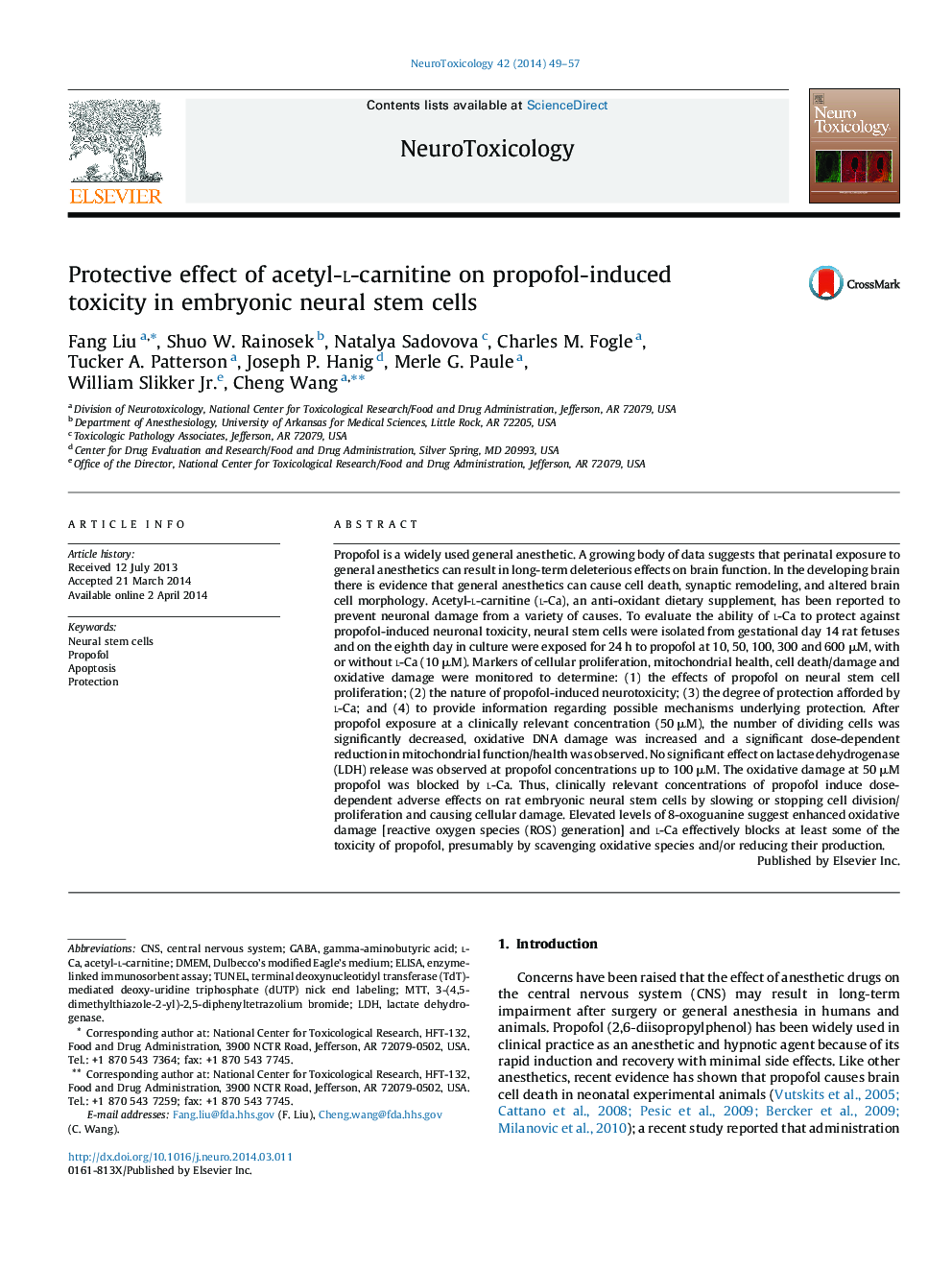| کد مقاله | کد نشریه | سال انتشار | مقاله انگلیسی | نسخه تمام متن |
|---|---|---|---|---|
| 2589623 | 1562052 | 2014 | 9 صفحه PDF | دانلود رایگان |
• Propofol reduced neural stem cell viability.
• Propofol reduced neural stem cell proliferation.
• Acetyl-l-carnitine attenuates propofol's adverse effects.
Propofol is a widely used general anesthetic. A growing body of data suggests that perinatal exposure to general anesthetics can result in long-term deleterious effects on brain function. In the developing brain there is evidence that general anesthetics can cause cell death, synaptic remodeling, and altered brain cell morphology. Acetyl-l-carnitine (l-Ca), an anti-oxidant dietary supplement, has been reported to prevent neuronal damage from a variety of causes. To evaluate the ability of l-Ca to protect against propofol-induced neuronal toxicity, neural stem cells were isolated from gestational day 14 rat fetuses and on the eighth day in culture were exposed for 24 h to propofol at 10, 50, 100, 300 and 600 μM, with or without l-Ca (10 μM). Markers of cellular proliferation, mitochondrial health, cell death/damage and oxidative damage were monitored to determine: (1) the effects of propofol on neural stem cell proliferation; (2) the nature of propofol-induced neurotoxicity; (3) the degree of protection afforded by l-Ca; and (4) to provide information regarding possible mechanisms underlying protection. After propofol exposure at a clinically relevant concentration (50 μM), the number of dividing cells was significantly decreased, oxidative DNA damage was increased and a significant dose-dependent reduction in mitochondrial function/health was observed. No significant effect on lactase dehydrogenase (LDH) release was observed at propofol concentrations up to 100 μM. The oxidative damage at 50 μM propofol was blocked by l-Ca. Thus, clinically relevant concentrations of propofol induce dose-dependent adverse effects on rat embryonic neural stem cells by slowing or stopping cell division/proliferation and causing cellular damage. Elevated levels of 8-oxoguanine suggest enhanced oxidative damage [reactive oxygen species (ROS) generation] and l-Ca effectively blocks at least some of the toxicity of propofol, presumably by scavenging oxidative species and/or reducing their production.
Journal: NeuroToxicology - Volume 42, May 2014, Pages 49–57
